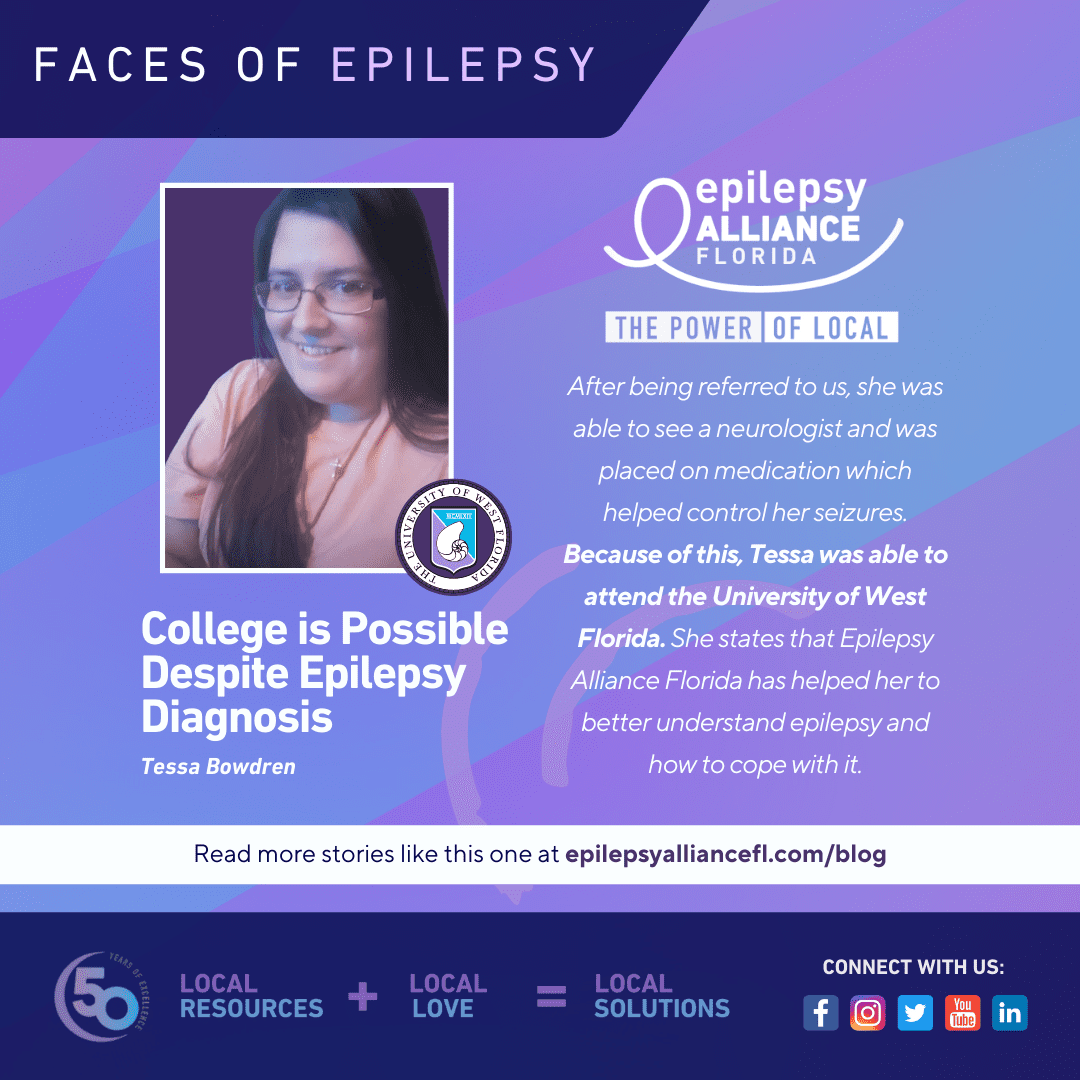
College is Possible Despite Epilepsy Diagnosis
Tessa Bowdren came to Epilepsy Alliance Florida after being referred by her doctor. She was diagnosed with epilepsy at the age of three. When she first came to us in 2015, she was having frequent generalized tonic-clonic (grand mal) seizures. Tonic-clonic seizures are known to be some of the worst and most recognizable type of seizures. It’s what most people think about when they think about a seizure. This type of seizure involves a loss of consciousness and violent muscle contractions.
After being referred to us, she was able to see a neurologist and was placed on medication which helped control her seizures. Because of this, Tessa was able to attend the University of West Florida. She states that Epilepsy Alliance Florida has helped her to better understand epilepsy and how to cope with it. She has also participated in some of our support groups, which are now offered virtually via Zoom.
Currently, Tessa is in her third year at UWF, studying Psychology and doing very well. She does, however, foresee new challenges coming her way as she may soon have to deal with seizures at work and the issue of driving and transportation. Tessa hopes to continue utilizing all the resources and programs Epilepsy Alliance Florida has to offer so that she can face these challenges with confidence and a community of support.
💡 The following are a few tips for those who are college-bound:
- Make sure you have a good routine established for taking your medications. Set an alarm or download an app, like Medisafe, to help remind you.
- Know where you can go either on or off-campus to get your medications refilled.
- Know where medical services are located on your campus map and make an appointment to check-in and learn more about what resources may be available through your school.
- Communicate any special needs ahead of time with your school so that they can accommodate you accordingly.
- Let those around you know, like your roommates, close friends, co-workers, resident and medical advisors, and even your professors and TAs. If they know, they can help.
- Know how you will use transportation, whether it’s calling an Uber or learning the local bus and train routes, you will want to know ahead of time how to get around safely.
- Wear a medical alert device or bracelet. There are many stylish options available at MyID.
- Learn more about Service Dogs. We have a scholarship program available and encourage you to apply.
- Please remember, you are not alone! There are others on-campus just like you, with the same challenges and fears. Reach out to us if you are interested in starting a support group at your school. These can be set up in-person or online, depending on your comfort zone.
We hope Tessa’s story inspires you and that you found our tips useful. Please reach out to us if you need help. We are here for you.